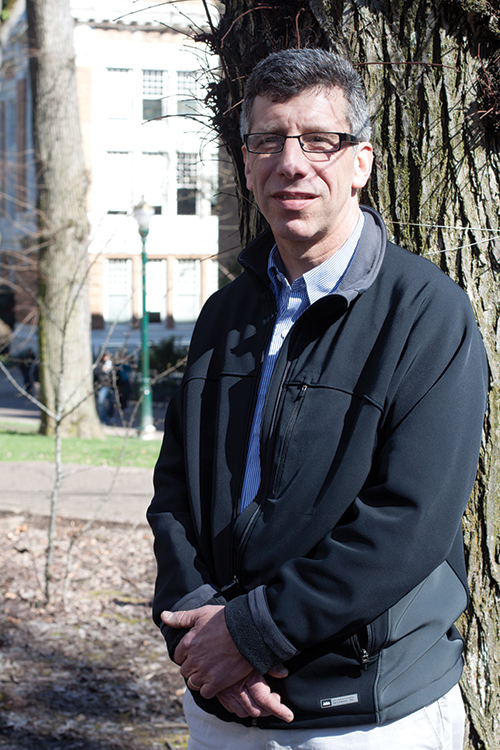
Climate change is a complex and multifaceted issue, and Portland State economics professor Randall Bluffstone is trying to do something about it.
Bluffstone has been studying the intersection between sustainability and economics to find better land management systems for rural farmers in developing countries since the ’80s.
Long-term management policies are especially important for farmers in developing nations because their main source of subsistence is their land, Bluffstone explained.
“Climate change is human[ity]’s greatest uncontrolled experiment,” Bluffstone said. “[T]here has been very limited agreement on how to act on climate change.”
The exception, he explained, has to do with developing nations’ forests and curbing their harvesting.
Deforestation accounts for 12–20 percent of carbon dioxide emissions globally, and much of it is happening in the developing world. That’s more than emissions from transportation systems worldwide.
Bluffstone’s work has involved trying to understand what kinds of incentives might encourage rural farmers to think long-term, as environmental resources are often a central aspect of a developing nation’s economy.
“The linkage between people’s welfare and the environment is critical to all,” Bluffstone said. “It’s just more important in developing regions.”
The situation requires both developed and developing nations to put their heads together, he said. One example is the United Nations Collaborative Programme on Reducing Emissions from Deforestation and Forest Degradation, also known as UN-REDD.
UN-REDD helps provide support for rural farmers by having wealthier countries fund deforestation actions in poorer ones.
Bluffstone said the efforts of UN-REDD provide a great framework for examining how developing and developed nations can work together for sustainable change.
The UN-REDD model is not to be viewed as a handout, Bluffstone said. The program is itself a long-term plan.
Before nations can receive funding, changes to infrastructure and institutions have to take place to ensure the program’s longevity in each nation. This, in effect, builds entire job sectors to maintain these efforts.
Bluffstone said the program is a win-win situation because it can improve the environment, improve the livelihoods of people in developing nations and provide the long-term incentive he’s been looking for.
“REDD represents a potential partnership between the developing and developed world,” he said. “The developing world should not have to pay the cost of stabilizing the climate.”
This is because wealthier nations are responsible for the effects of climate change, but even so, the developing world can’t be left out of the process of addressing the environmental issues we are facing on a global scale, he explained.
When asked about what the ideal outcome for his work might look like, Bluffstone said, “I would like to see people from the lower-income countries benefit from their climate change mitigation efforts.”

